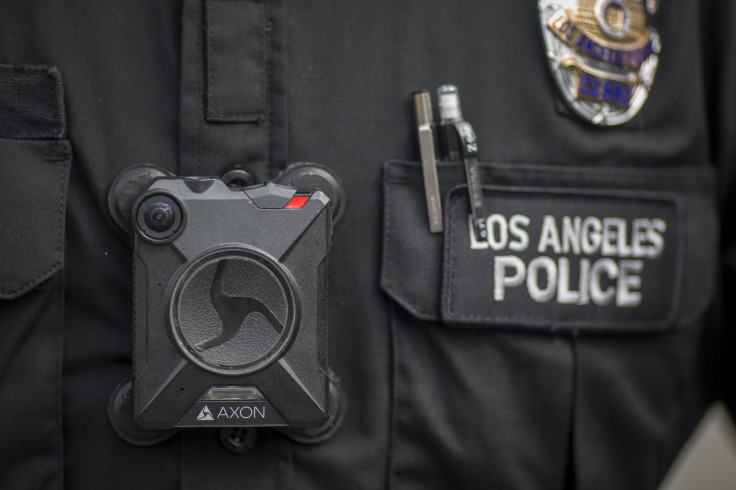How Body Cameras Affect Police Behavior, With More Officers Are Wearing Them

New York City (NYC) Mayor, Bill de Blasio, speeded up the process to deploy body cameras on New York Police Department (NYPD) officers via an announcement Tuesday, where he stated that all patrol officers would wear Body-Worn Cameras (BWCs) by the end of 2018, which is a year ahead of schedule.
According to a report by New York Post, de Blasio said, “By ensuring all patrol officers are outfitted with these essential, modern policing tools a year faster than originally planned, we’re helping to make New York City fairer faster.”
But will de Blasio’s plan actually make NYC “fairer?” Let’s take a closer look.
According to a study report released in Oct. 2017 by the Lab @ DC, it was found that BWCs don't have a significant effect on police behavior. In the study, 1,189 officers of the Metropolitan Police Department (MPD) were made to wear body cameras while another 1,035 officers were deployed without the equipment.
The researchers tracked each official which allowed them to record various incidents which comprised of use-of-force incidents and civilian complaints. They checked whether the BWCs resulted in a behavior change in the officers or not.
The researchers concluded, “We are unable to detect any statistically significant effects. As such, our experiment suggests that we should recalibrate our expectations of BWCs.”
Patrick Lynch, president of The Patrolmen’s Benevolent Association, a labor union which represents NYPD police officers, opposed de Blasio’s plan and said it “makes no sense” due to the fact that certain matters remain unsolved, the New York Post reported.
Lynch said, “The largest, most rigorous study to date suggests they have no such effect.”
“Jurisdictions across the country are confronting issues regarding due process, safety, and privacy of police officers and those who are the subject of captured footage, as well as a huge drain on municipal resources for unclear benefit,” Lynch added.
However, in a blog post on Police Foundation, a national independent non-profit organization which works towards the advancement of policing methods, the authors stated that the body cameras does serve a purpose which isn’t altering the police behavior, but for scrutinizing recorded behaviors.
The blog post was written by Dan Honig, an assistant professor of international development at John Hopkins University and Jayme Johnson, a former employee of London’s Metropolitan Police and currently an adjunct professor in the Department of Justice, Law and Criminology at the American University in Washington DC.
In the post, the authors tried to address an important question — “If body cameras don’t actually influence officer behavior in the ways some hoped, what is their value?”
They stated that BWCs might be perceived as a tool for both transparency and accountability. They went on to compare BWCs as a “disinfectant” because it prevents officers from displaying “unwanted bad actions” because they know that they are being watched.
The authors also compared body cameras to a “flashlight” as the recordings made on the camera, which might reveal various relevant information, could be used later. The authors stated that body cameras seemed to work better as a “flashlight” than as a “disinfectant.”
However, although they stated that the need for BWCs can’t be “underestimated,” they also said the equipment was being used as a “quick fix” in order to garner the faith of the people in law enforcement agencies.
To implement the plan, $27.5 million would be spent over the next three years, an amount which was kept aside from de Blasio’s preliminary budget for the fiscal year of 2019. The amount would cover the cost of the equipment along with additional IT and legal requirements, the New York Post reported.
NYC deployed 2470 BWCs so far and it also has plans to deploy 800 to 2,000 BWCs each month. By the end of 2018, 18,000 police officials would be deployed with body cameras, the report added.
© Copyright IBTimes 2024. All rights reserved.












